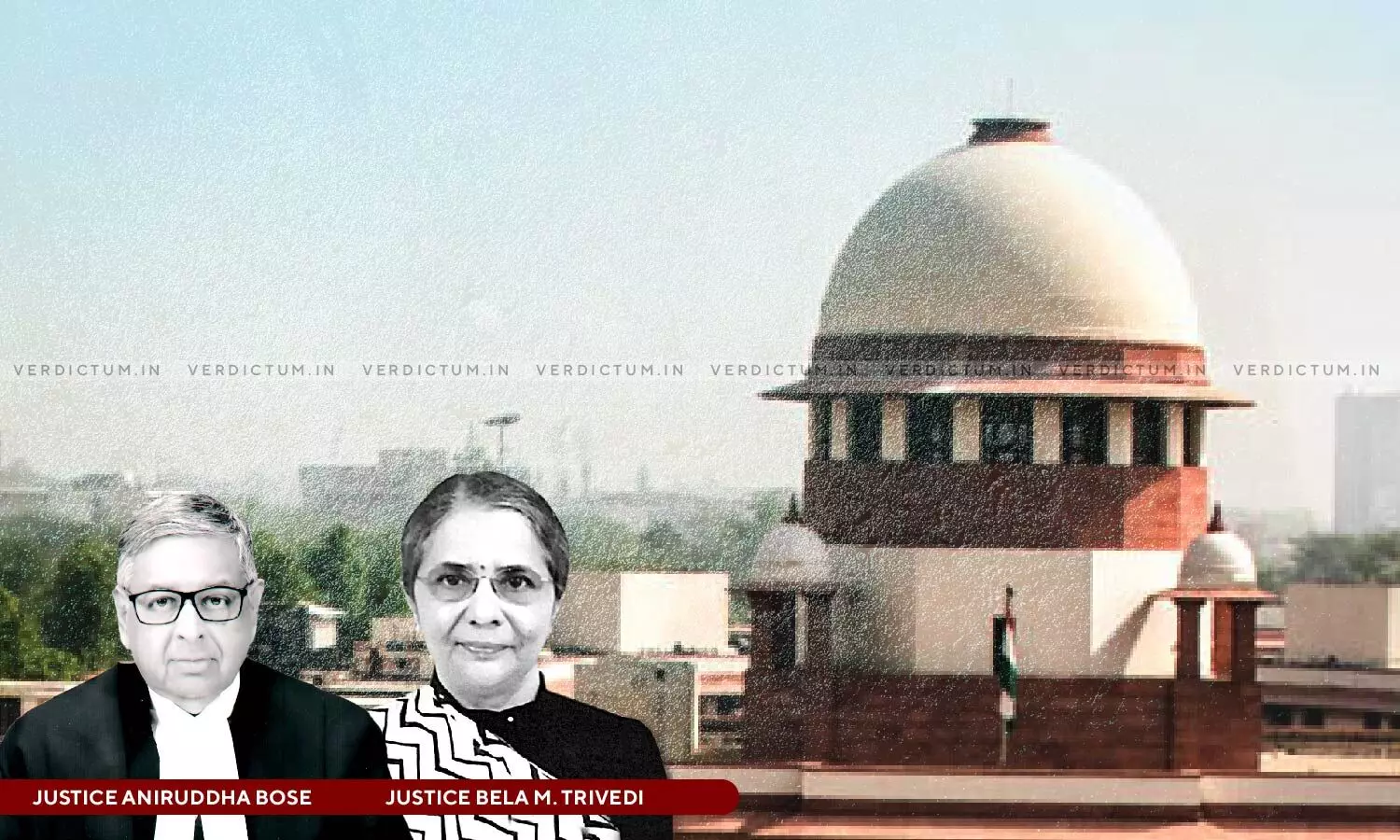
Omission To Label A Notice With Provision Under Which It Is Issued Won’t Make It Nugatory If Substance Is Clearly Conveyed: SC
 |
|The Supreme Court held that the omission to label a notice with the provision under which it is issued, would not make it nugatory, if the substance is clearly conveyed.
The Court held thus in the appeals filed by landlords against the judgment of the Bombay High Court that exercised its revisional jurisdiction by invalidating eviction decrees against two tenants in respect of two portions of the same building.
The two-Judge Bench of Justice Aniruddha Bose and Justice Bela M. Trivedi observed, “The High Court found fault with the demolition notice as it carried no reference to the said provision (Section 195 of the 1965 Act). This flaw, by itself would not make the notice unenforceable. Omission to label a notice with the provision under which it is issued would not make it nugatory, if substance thereof is clearly conveyed.”
The Bench added that the conditions under which a landlord can bring an eviction action under clauses (i) and (k) of Section 16(1) of the Maharashtra Rent Control Act, 1999 are different in their operations.
Senior Advocate Vinay Navare represented the appellants/landlords while Advocate Makarand D. Adkar represented the respondents/tenants.
In this case, the premises in dispute comprised of two blocks within the building and the tenant whose eviction was sought for in the suit was deceased. Hence, his legal representatives contested the appeal. The property from which the landlords wanted the tenants to be evicted, comprised of two rooms located in the middle of the said building and the said rooms were used for residential purpose. The landlords purchased the premises in the year 1992 and both the tenants were inducted by the erstwhile owner of the building.
In 2002, a demolition notice was issued by the Mahabaleshwar Giristhan Municipal Council for a part of the subject-building. This notice constituted one of the grounds on which the landlords wanted to evict the tenants under the Maharashtra Rent Control Act. Such notice was followed by three subsequent notices by the said Municipal Council in 2005, 2009, and 2010, almost on similar terms. Notices for eviction were then sent to the tenants and thereafter, the Trial Court decreed the suit, which was sustained by the Appellate Court. In the Civil Revision Petition, the tenants succeeded as the judgment and decree were set aside.
The Supreme Court in view of the facts and circumstances of the case said, “After holding that the satisfaction contemplated in the aforesaid provision is that of the local authority in a suit for eviction, it has been held that an area of satisfaction is still reserved for the Court. Court has to examine if there is immediacy of the need for demolition. Broadly, the same view has been taken by the Bombay High Court in a later judgment, in the case of Manohar Prabhumal Rajpal -vs- Satara City Municipal Corporation, Satara and Another [(1993) 1 All India Rent Control Journal 81]. In this judgment, the Court dealt with an eviction suit filed under the provisions of Section 13(1)(hhh) of the Bombay Rents, Hotel and Lodging House Rates Control Act, 1947 (“1947 Act”).”
The Court observed that aforesaid provision is near identical to the provisions of Section 16(l)(k) of the 1999 Act. It accepted the appellants’ argument that the Court trying an eviction proceeding under the said provision has very limited role in determining as to whether demolition is really necessary or not, but it does not automatically follow therefrom that the Court would mechanically adopt the view of municipal authority of there being urgent need of demolition.
“The conditions under which a landlord can bring an eviction action under clauses (i) and (k) of Section 16(1) are different in their operations. In respect of an eviction proceeding founded on the former provision, it contemplates a lesser degree of immediacy or urgency, as held in the Constitution Bench judgment which we have referred to above. But the latter provision requires a greater degree of urgency and it is within the jurisdiction of the Court to test this factor, as held in the cases of M.L. Sonvane (supra) and Manohar P. Rampal (supra). Both the fact finding fora failed on this count”, it noted.
The Court concluded that ordinarily the Revisional Court ought not to interfere with findings on fact but in the judgment under appeal, the Revisional Court has fitted the facts with the legal provisions and found that there was mismatch, based on which the judgment and decree were set aside.
Accordingly, the Apex Court dismissed the appeals.
Cause Title- Baitulla Ismail Shaikh and Anr. v. Khatija Ismail Panhalkar and Ors. (Neutral Citation: 2024 INSC 71)
Appearance:
Appellants: Advocates Abhay Anil Anturkar, Dhruv Tank, Aniruddha Awalgaonkar, and AOR R. R. Deshpande.
Respondents: Advocate Shantanu M. Adkar, AORs Aparna Jha and Prashant Padmanabhan.